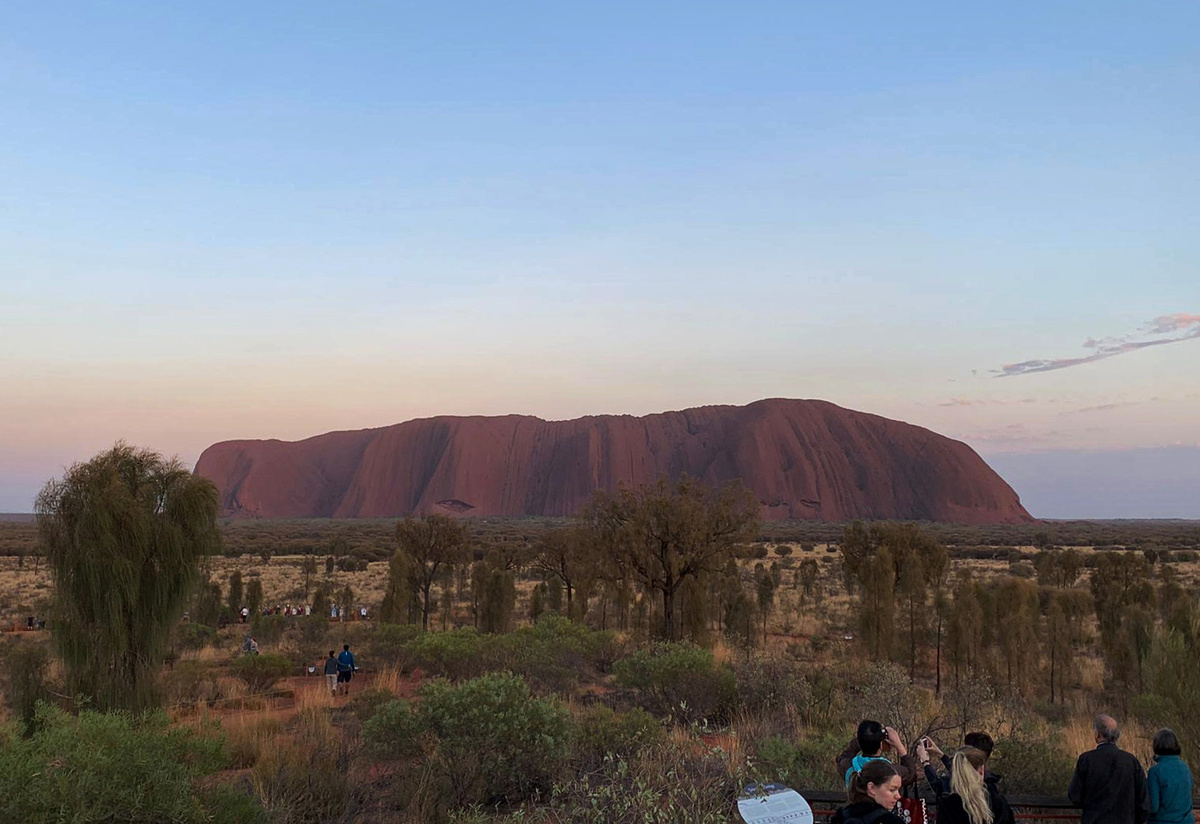
YULARA, Australia (Reuters) - Australia's Uluru officially closed to climbers for good on Friday, although the last visitors to scale the sacred rock were allowed to stay until sunset, as a permanent ban takes effect after a decades-long fight by indigenous people.
To commemorate the climbing ban, public celebrations will take place over the weekend when the dismantling of the trail and its railing is also expected to begin.

Earlier in the day, hundreds of tourists clambered up the UNESCO World Heritage-listed 348-metre (1,142-ft) monolith, formerly known as Ayers Rock.
Authorities had opened the climb mid-morning amid clear skies, after blustery conditions delayed early trekkers.
Uluru is a top tourist draw in Australia despite its remote desert location near Alice Springs in the Northern Territory.

While most visitors don't climb its steep, red-ochre flanks, the impending Oct. 26 ban has triggered a surge in people taking a final opportunity to make the trek.
Nearly 400,000 visitors flocked to the Australian landmark in the year to end-June, government data shows. Australians still make up the bulk of the visitors to climb the rock, followed by Japanese, Parks Australia says.
The Anangu people, the traditional owners of Uluru, have called for the climb to be closed since 1985, when the park was returned to indigenous control. The Anangu say Uluru has deep spiritual significance as a route their ancestors took.

"This is our home," read a sign at the base of the rock. "Please don't climb."
"It shows that Anangu can actually make decisions about the land they own and more importantly Anangu aren't going to have to get sad anymore," said Steven Baldwin, national park operations and visitor services manager.
"Whenever anybody gets sick, or injured, or worse on the climb, they get extremely sad, so this is an absolutely fantastic day for the park and fantastic for Anangu."

Sonita Vinecombe, a visitor from the Australian city of Adelaide who lined up early in the morning to make the trek, said she had mixed feelings.
"You want to respect the cultural side of things, but still you want to have it as a challenge to get up the rock," she told Reuters.
American tourist Kathleen Kostroski said she would not climb because it would be "sacrilegious" to do so.

One of the last climbers, Jason Dudas from Las Vegas, said: "Well, I know there's a big controversy on the hike, and I respect the First Nations here, but since it was an optional thing to do, I decided to do it and now that it's officially closed, I won't be hiking it anymore."
Dozens of people have died while climbing Uluru, from falls and dehydration. Summer temperatures often top 40 degrees Celsius (104 degrees Fahrenheit).
The closure was announced two years ago when fewer than 20 percent of visitors were making the climb.

It was an emotional day, said indigenous ranger Tijiangu Thomas.
"Happiness is the majority feeling, knowing that people are no longer going to be disrespecting the rock and the culture - and being safe."
The Oct. 26 closure marks 34 years since the land was given back to the Anangu people, an important moment in the struggle by indigenous groups to retrieve their homelands.

(Reporting by Stefica Nicol Bikes in Yulara; Writing by Swati Pandey and Jonathan Barrett; Editing by Lincoln Feast, Clarence Fernandez, Hugh Lawson and Giles Elgood)







